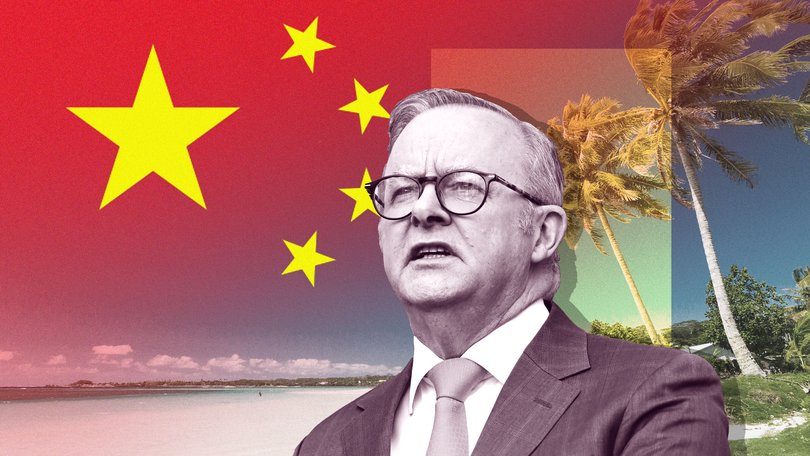EDITORIAL: Beijing scores win in battle for Pacific influence
EDITORIAL: We are no longer the only country in our region looking to buy friends and influence people.

Once upon a time, “Pacific engagement” was an easy gig for an Australian prime minister.
Hop aboard a short flight to some sun-soaked tropical island nation, bung on a loud shirt, announce a few million in infrastructure out of the foreign aid budget and there might even be time to sneak some snorkelling in before returning to chilly Canberra.
Not so anymore.
Sign up to The Nightly's newsletters.
Get the first look at the digital newspaper, curated daily stories and breaking headlines delivered to your inbox.
By continuing you agree to our Terms and Privacy Policy.Those once hospitable Pacific islanders can no longer ignore the water lapping at their doors, to borrow a phrase coined by Peter Dutton back when he was immigration minister.
But the threat of climate change, and Australia’s contribution to it, isn’t the only point of tension between us and our neighbours.
We are no longer the only country in our region looking to buy friends and influence people.
And our No. 1 rival in that regard has deep pockets and a strong ambition to expand its footprint within the Pacific.
China has been on a spending spree looking to buy favour. Take its gift of a fleet of 27 brand new luxury vehicles to the Solomon Islands, just in time for it to host the Pacific Islands Forum this week.
Whatever Mr Albanese finds there, it will be no holiday
Among the first passengers scheduled to enjoy the Solomons’ new ride (and presumably have all conversations within transmitted straight back to Beijing): Prime Minister Anthony Albanese, who will be in Honiara for the forum.
Australia’s response was to announce its own gift of 60 vehicles for the Solomon Islands. Plus cybersecurity support, plus some cash for road upgrades, and help tracking illegal fishers.
Beat that, China.
Other recent investments by Australia include a $200m deal to train police in Papua New Guinea as well as security guarantees with Tuvalu and Nauru that give Canberra the right to veto any competing arrangements those nations may wish to strike.
It’s an arms race of generosity and understandably these largely impoverished island nations have decided to use all this so-called “strategic competition” between Australia and China to their advantage.
Now it’s Vanuatu’s turn.
Mr Albanese travelled to Port Vila on Tuesday expecting to sign off on a $500m deal which would help address the nation’s economic, security and climate needs, while locking in Australia as its main security and development partner.
But Vanuatu’s eye has been wandering. The deal has been deferred, though the Mr Albanese said he was confident it would get over the line soon.
His Ni-Vanuatu counterpart Jotham Napat gave a one-word answer when asked if he was concerned doing a deal with Australia would limit his nation’s ability to seek infrastructure funding from other nations: “Yes”.
In international politics, it doesn’t get much clearer than that.
Luckily, the pair will have some extra time to hash things out, with Mr Napat joining Mr Albanese on his RAAF jet bound for Honiara.
Whatever Mr Albanese finds there, it will be no holiday.
